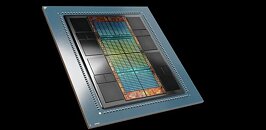- Joined
- Oct 9, 2007
- Messages
- 47,775 (7.41/day)
- Location
- Dublin, Ireland
| System Name | RBMK-1000 |
|---|---|
| Processor | AMD Ryzen 7 5700G |
| Motherboard | Gigabyte B550 AORUS Elite V2 |
| Cooling | DeepCool Gammax L240 V2 |
| Memory | 2x 16GB DDR4-3200 |
| Video Card(s) | Galax RTX 4070 Ti EX |
| Storage | Samsung 990 1TB |
| Display(s) | BenQ 1440p 60 Hz 27-inch |
| Case | Corsair Carbide 100R |
| Audio Device(s) | ASUS SupremeFX S1220A |
| Power Supply | Cooler Master MWE Gold 650W |
| Mouse | ASUS ROG Strix Impact |
| Keyboard | Gamdias Hermes E2 |
| Software | Windows 11 Pro |
Raytheon, an RTX business, has been awarded a $20 million contract through the Strategic and Spectrum Missions Advanced Resilient Trusted Systems (S2MARTS) consortium to develop a next-generation multi-chip package for use in ground, maritime and airborne sensors. Under the contract, Raytheon will package state-of-the-art commercial devices from industry partners like AMD to create a compact microelectronics package that will convert radio frequency energy to digital information with more bandwidth and higher data rates. The integration will result in new system capabilities designed with higher performance, lower power consumption and reduced weight.
"By teaming with commercial industry, we can incorporate cutting-edge technology into Department of Defense applications on a much faster timescale," said Colin Whelan, president of Advanced Technology at Raytheon. "Together, we will deliver the first multi-chip package that features the latest in interconnect ability - which will provide new system capabilities to our warfighters."

This multi-chip package will be created with the latest in industry-standard die-level interconnect ability, enabling individual chiplets to reach their peak performance and achieve new system capabilities in a cost-effective and high-performance way. It's designed for compatibility with Raytheon's scalable sensor processing requirements.
Chiplets from commercial partners will be integrated onto a Raytheon-designed and fabricated interposer by our 3D Universal Packaging (3DUP) domestic silicon manufacturing process in Lompoc, California. This award will be managed by the National Security Technology Accelerator and administered by the Naval Surface Warfare Center Crane Division in Indiana.
View at TechPowerUp Main Site
"By teaming with commercial industry, we can incorporate cutting-edge technology into Department of Defense applications on a much faster timescale," said Colin Whelan, president of Advanced Technology at Raytheon. "Together, we will deliver the first multi-chip package that features the latest in interconnect ability - which will provide new system capabilities to our warfighters."

This multi-chip package will be created with the latest in industry-standard die-level interconnect ability, enabling individual chiplets to reach their peak performance and achieve new system capabilities in a cost-effective and high-performance way. It's designed for compatibility with Raytheon's scalable sensor processing requirements.
Chiplets from commercial partners will be integrated onto a Raytheon-designed and fabricated interposer by our 3D Universal Packaging (3DUP) domestic silicon manufacturing process in Lompoc, California. This award will be managed by the National Security Technology Accelerator and administered by the Naval Surface Warfare Center Crane Division in Indiana.
View at TechPowerUp Main Site





